“Clean” vs. “Dirty” — eating to optimize health?
Trigger warning: Discussion of diets and weight loss.
I’ve been seeing quite a few comments on my Facebook feed about “clean” eating — how it’s so much healthier for one’s body and how easily it leads to weight loss are the two main recommendations that people give as the reason for eating a “clean” diet. So I decided to do a little research to find out just what all the fuss was about. Believe me, there is a lot of fuss about it going on too; advocates of “clean” eating are vehement about their choice to eat “clean” and some of them are very judgmental of anyone who doesn’t drop their “dirty” food habit immediately and jump on the bandwagon.
The best article I could find that explains what “clean eating” is was fairly clear about it all, but there are a few assumptions in here that need to be challenged.
Where did the “clean” eating movement come from?
Clean eating is mostly a new-age concept that began when we had enough cultural advancements to create excess. Books such as Michael Pollan’s “The Omnivore’s Dilemma” and popular documentaries like “Food, Inc.” have helped bring ingredient awareness to the forefront of people’s minds. Michelle Obama’s healthy-eating campaign has also played a major role in this awareness.
More significantly is the need for clean eating as a necessity for health. ”Heart disease, cancer, stroke and diabetes are in almost every household in the country. Those are lifestyle related conditions. We’re all affected by it. The problem is so urgent at this point we can’t just keep on keeping on.”
It looks, to me anyway, like people who have the time, money, and energy to devote to this type of diet are the ones who created it. But what I take exception with in the above quote is the “Heart disease, cancer, stroke and diabetes are in almost every household in the country. Those are lifestyle related conditions.” Lifestyle-related conditions? Really? Genetics don’t have any part to play in them at all?
While I may agree that some of the ingredients in our food supply may contribute to heart disease, cancer, stroke, and diabetes, I don’t think that eating “clean” is going to eradicate or lessen the impact of any of those diseases. Way to add fuel to the fire — the fire of blaming people for the diseases they get. Blame them because what they ate wasn’t up to some “standard” of “clean.” If they had just eaten “clean”, they wouldn’t have gotten whatever disease or it wouldn’t have been as bad.
As for how urgent the problem is, I think lowering the diagnostic standards for what constitutes the start of hypertension or diabetes has more to do with that. Every time the standards are lowered, previously healthy people are added to the list of those who need “treatment” (which is something I’ve written, and ranted, about before).
Let’s take a look at what “clean” eating is. According to the linked article, it’s eating foods that have as few ingredients as possible — in other words, unprocessed.
The clean eating rule of thumb: The shorter the ingredient list, the better. No specific food is off-limits as long as it’s a real, honest-to-goodness food. In other words, this isn’t a “diet” that bans bread or sacrifices sugar.
It doesn’t ban bread outright, but if you don’t have the time or the money to buy the ingredients to bake your own bread, bread would not be on the list of “clean” foods. Ever read the ingredient list on a loaf of bread? Even the “whole grain,” supposedly “healthy-for-you” breads have ingredients in them that we can’t pronounce and we would have to look up to see exactly what they are and what purpose they serve.
“This is a way of eating that you can eat until you’re full and satisfied, and the side benefit is the weight loss,” said Ivy Larson, co-author of “Clean Cuisine.” Larson’s multiple sclerosis symptoms were lessened when she started eating a “clean” diet.
Although Larson and her clients have a more strict interpretation of clean eating, the core principles of the plan are the same: Eat whole foods and less packaged items.
Larson recommends starting by adding one “clean” meal a day to your diet, adding more week by week. She suggests that buying frozen vegetables or fruits is a quick way to add nutrients to your diet with less work.
A common belief is that clean eating — or healthy eating in general — is more expensive than fast-food choices. “To eat this way is actually cheaper than processed food. You just have to put in the labor,” said Orlando, “We take more energy making our car nice than taking care of our bodies,” he said.
There always has to be a side benefit, and that side benefit just has to be weight loss. Why can’t we just stop at improved health? Why does it always have to have “weight loss” thrown in there too? I noticed that nowhere is it stated, as a number of pounds or a percentage of beginning body weight, what that “weight loss” looks like. Why is there this obsession with weight, and with blaming weight for all of our ills? Even people who aren’t fat get these diseases. Even people who aren’t fat can end up disabled, for whatever reason. So why is the focus always on weight loss?
“Clean” eating may be right for you, if you have the money, time, and energy (spoons) to devote to shopping for “clean” foods and then preparing them. Not to mention you also need to have a place to store all those “clean” foods/ingredients — refrigerator/freezer, cupboards, containers, etc., as well as a stove (and the wherewithal to pay for the gas/electricity it takes), and enough pots/pans to cook those foods.
Sorry, but there are some of us who just don’t have enough spoons to do the grocery shopping for “clean” food, let alone have enough spoons left over to put it all away properly, and then actually prepare meals from scratch. There are a lot of illnesses and disabilities that “clean” eating isn’t going to resolve, and those of us who can’t jump on this bandwagon don’t need to be judged for our choices (and I’ve seen a lot of that judgment issued against people online).
In the end, it all boils down to everyone eating as best they can in the circumstances with which they’re dealing. And that is a very personal issue for each and every one of us, which is not the business of anyone else. Whoever wants to eat “clean” has the right to do so without judgment. But I reserve the right to not eat “clean,” for whatever reasons, and not be judged for that. My body, my choice — your body, your choice.





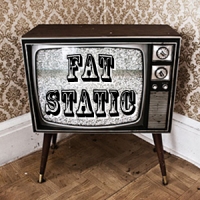

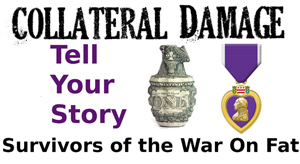


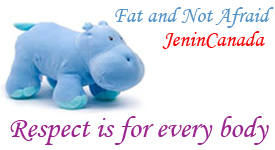

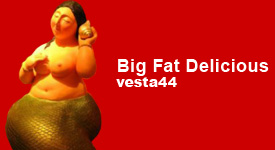

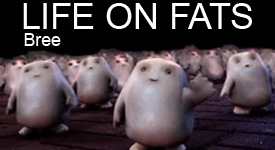

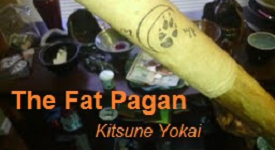
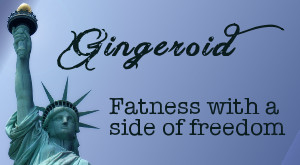





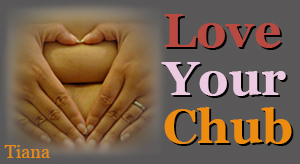
It sounds like yet another reason for people to be jerks to one another for no good reason. People who go around judging others and getting some sort of sick satisfaction out of pointing out how sick people “deserve” their illness are the lowest forms of life imaginable. And of course, you just know that weight loss is touted as a “side” (read: only one we care about) benefit. How else would they get the smug, superficial “health nuts” on board? But don’t worry, people will get bored with this one sooner or later, like they do with everything else.
What drives me nuts about this “clean” eating concept is that it implies that other foods are “dirty” or unsafe when in reality we live in a society where (aside from occasional food-borne illness and contamination) the food is mostly safe to eat. Just another way to create food paranoia and a cult of food-superiority and ultimately more disordered relationships to eating.
One point I forgot to make was that it seemed to me just another way of labeling food “good” or “bad”, and that’s certainly something we don’t need more of in our lives. People are already “judged” for so many things in their lives over which they have little or no control, and fat people are already judged (every damned day, and almost every hour of those days) over what we eat. We don’t need to add another category to the list over which we’re blamed, shamed, and bullied. Enough is enough, and when the hell is it going to stop? (Rhetorical question there, I don’t think it will ever stop)
Great article! This ‘clean’ food thing drives me nuts. It is so elitist – classism all the way.
Having said that by a lot of definitions I do actually eat (shudder) ‘clean’. Cooking and food prep is one of my main pain-control therapies, and I am lucky to live in a rare place where it is cheaper to buy and eat whole foods, and easy to grow, which is good because I cannot work more than a few hours per week.
I enjoy my food and it probably helps my health to some extent, but I’ve been eating like this for some time now and I can assure everybody that I am still fat and still have debilitating chronic illness. Of course I do! Food isn’t a miracle cure: it can help with some things and not with others.
The thing is: food is food. There is nutrition in fast food and lovingly handmade stuff can be less good for you. But it is all food that can be used and processed and converted into energy and as far as I’m concerned that is good. The only ‘dirty’ food is stuff you accidentally drop (and then doesn’t the Three Second Rule kick in? LOL)
great article! love the detail in it! x
That point about lowered diagnostic cutoffs is one that I think a lot of people miss. If you lower the criteria and make the symptoms vague enough that they apply to anyone at some point, of course the result is more people getting diagnosed and treated.
As for “clean eating”, it sounds like another “good food”/”bad food” labeling thing, and it makes it no different from any other diet out there.
True, it seems like just another excuse to push more drugs on people. It’s as if they WANT us drugged up! Newsflash: at least make it a drug that makes you feel mellowed out (like pot or alcohol or something).
“A common belief is that clean eating — or healthy eating in general — is more expensive than fast-food choices. “To eat this way is actually cheaper than processed food. You just have to put in the labor,” said Orlando”
I feel this also gets us into the SDH aspects of HAES that atchka recently wrote about.
Many people are working a hell of a lot of hours and struggle just to afford basic things like running water, electricity, heat, and a roof over their head, as well as food. In addition to this this, they also try to spend with their families if they have one, engage with friends, date, and/or generally try to have a fulfilling social life outside of sleeping and working.
Plus, ya know, sometimes people need a moment to rest their feet and simply relax each day. Stress will kill ya dead just as much if not more than “unclean” eating ever will.
Such people, and such struggling households, would be hard pressed to find the time to prepare everything from scratch very often, AND exercise each day, and still raise a family. Hours in each day are finite. By comparison, those individuals or families that have better financial stability and incomes, are more apt to have extra time/energy available to invest in additional labor each day to prepare more foods from scratch.
There used to be a time when we, as a nation, ate much less processed foods not because it was trendy, or to be healthy, but as a matter of every day routine. We prepared and ate much more food from scratch made with whole food ingredients. However, back in those days the income from a single blue collar job was often enough to support a modest lifestyle and family. As incomes for the middle class and poor stagnated (while the wealthy got ever wealthier) and the costs of of basic necessities like food and utilities rose, it became ever more necessary for families to require two incomes, and people to work more and more hours, leaving less and less time to prepare those whole foods from scratch each day.
So, this notion that “you just have to put in the labor” comes across to me as myopic, because some people just don’t have much more extra labor to spare, either due to long working hours, disability/mobility constraints, other family needs and concerns, and so on.
While there is nothing wrong with eating unprocessed food, the time it takes is ridiculous. Commercial processing of food might add preservatives and lessen our control over our food, ir it might not, but it definitely allows us the time to focus on exercise, activism, or just plain living our lives.
And the thing the likes of Michael Pollan and his supporters forget/ignore, is that we’re healthier than ever when it comes to lifespan and geriatric health, in part because of the mass commercial food production systems in our country.